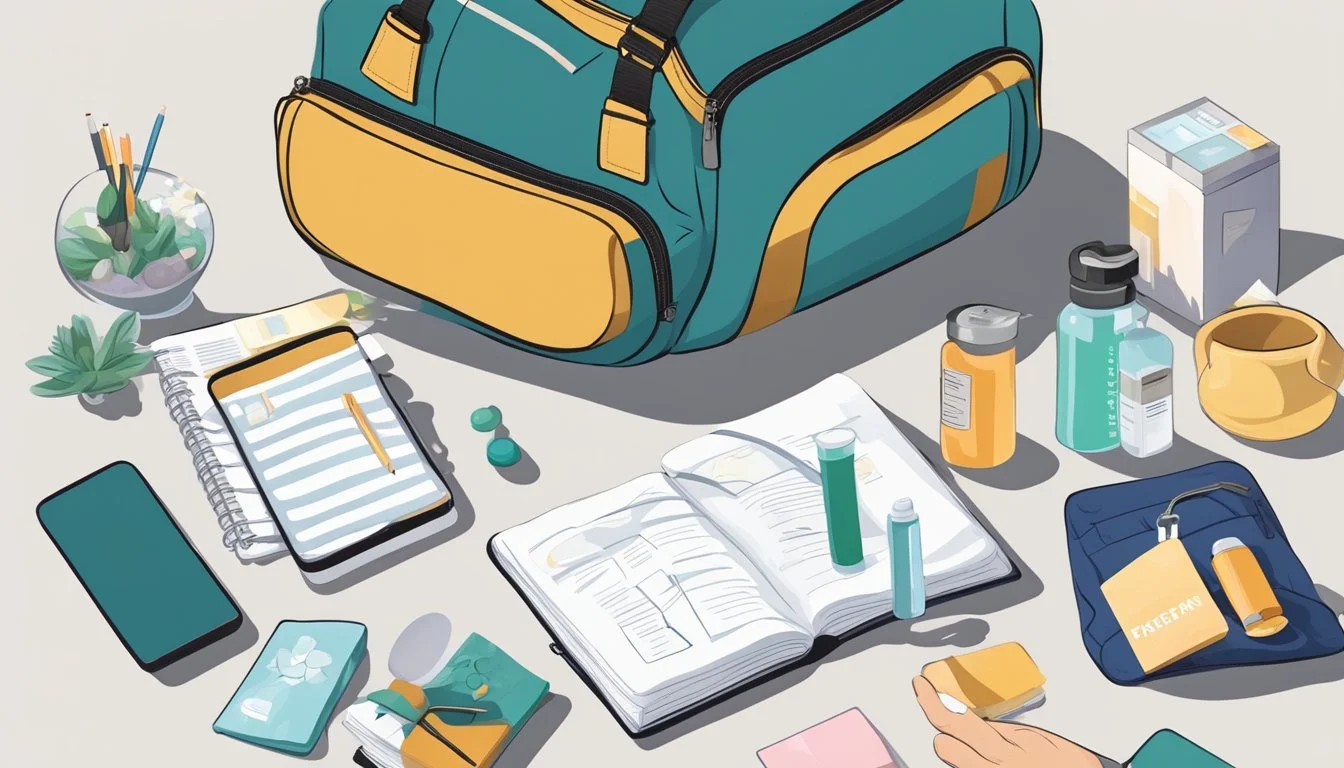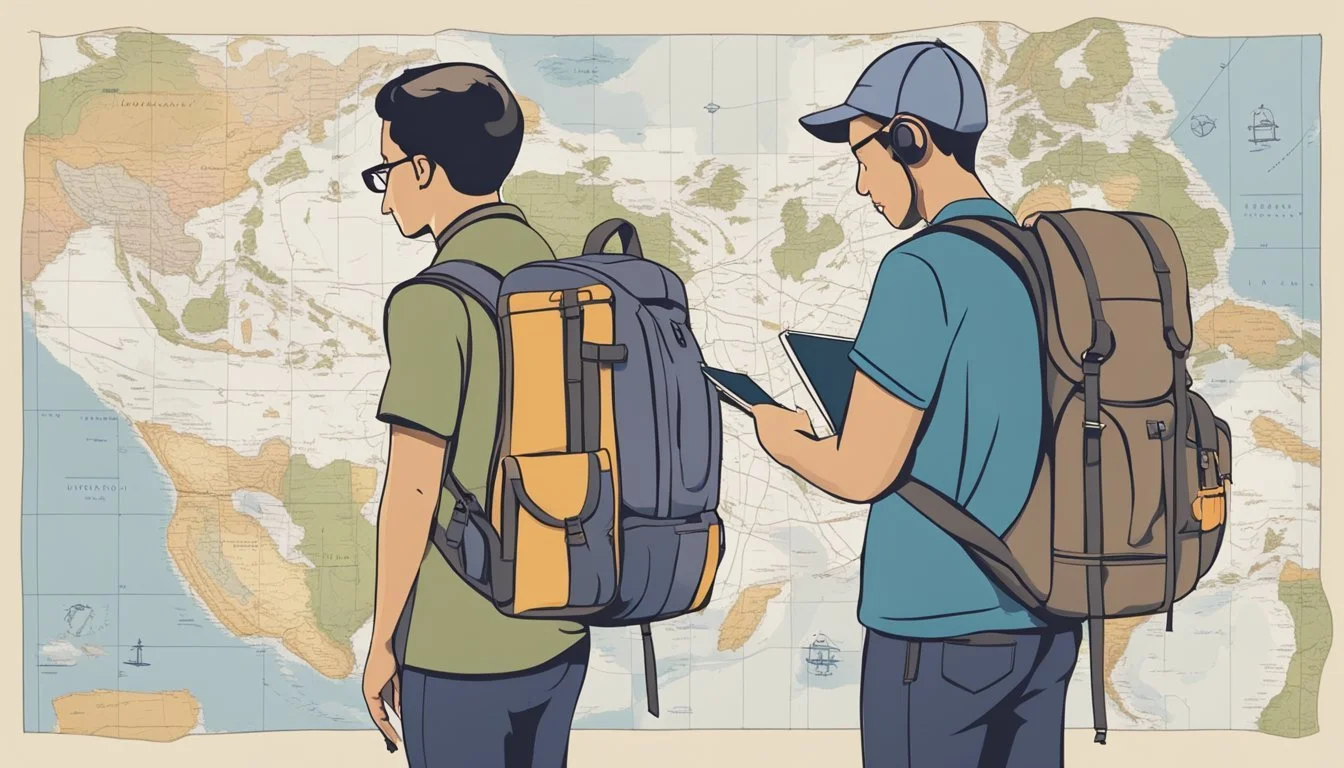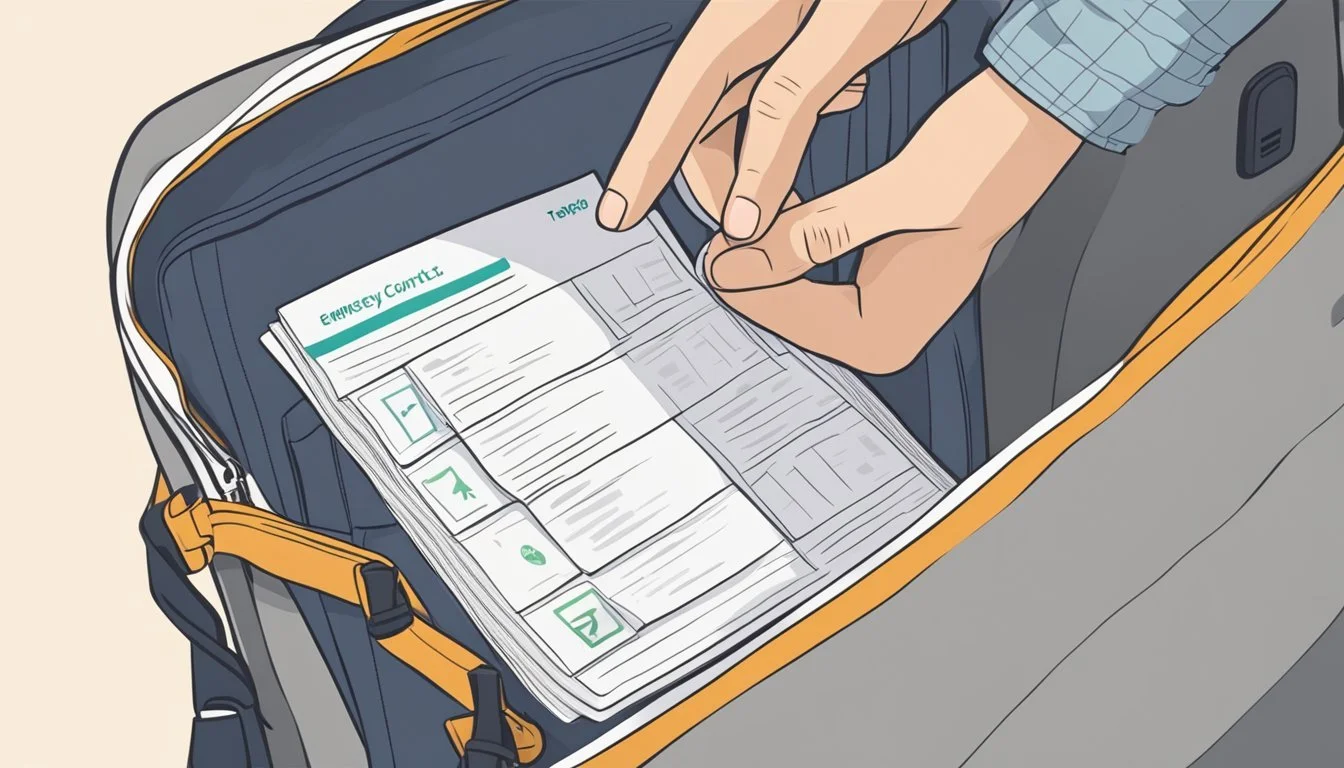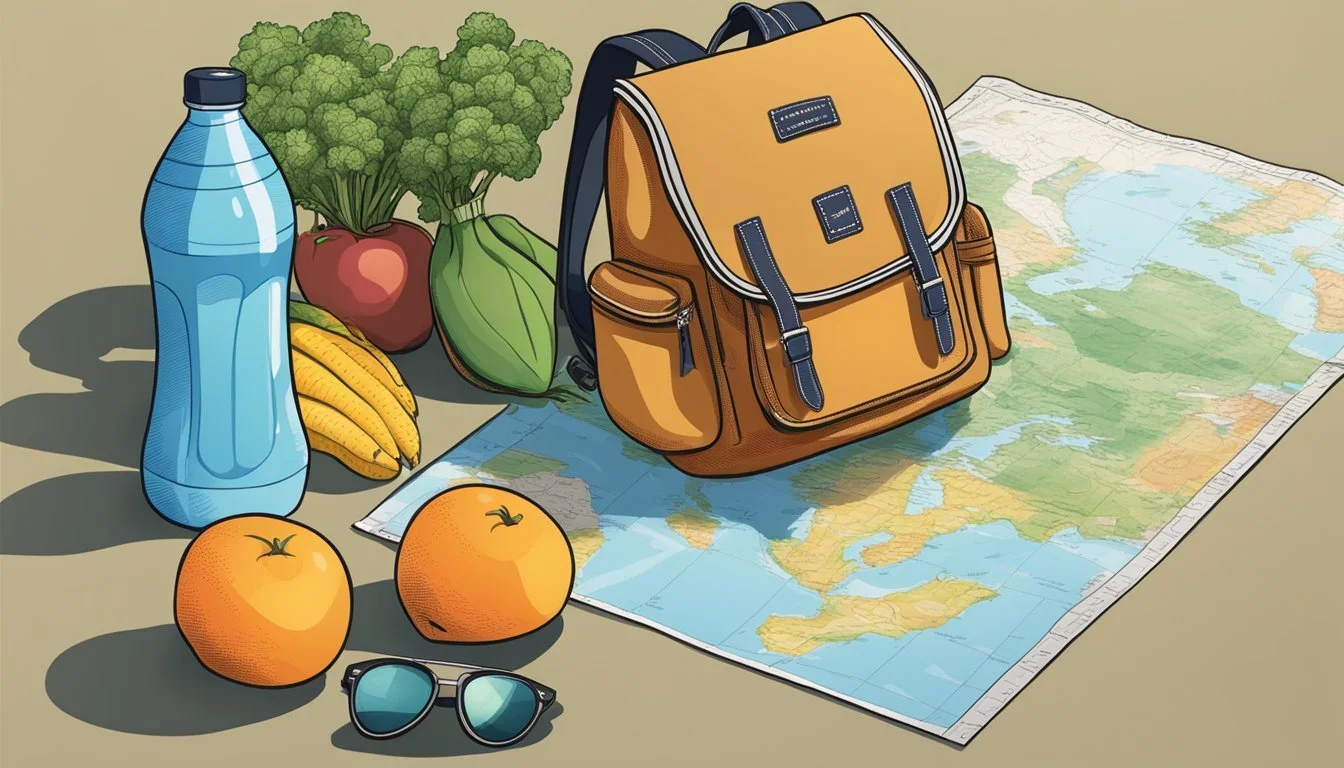8 Tips for Traveling Safely While Managing Depression
Practical Advice for a Worry-Free Journey
Traveling can be an enriching experience, offering new perspectives and adventures. For those managing depression, it may present unique challenges but also opportunities for growth and self-discovery. With proper planning and self-care strategies, individuals can navigate their journeys while effectively managing their mental health.
Implementing specific tips and techniques can help travelers with depression enjoy their trips more fully while prioritizing their well-being. By addressing potential triggers, maintaining routines, and practicing self-compassion, those with depression can create a supportive framework for their travels. This approach allows them to embrace new experiences while maintaining stability and emotional balance.
1) Plan your itinerary in advance
Planning an itinerary in advance can be crucial for travelers managing depression. Creating a structured schedule helps reduce anxiety and provides a sense of control over the trip.
Start by researching the destination and identifying key attractions, accommodations, and transportation options. Consider factors like opening hours, ticket availability, and potential crowds to minimize stress during the journey.
Include a mix of activities and downtime in the itinerary. This balance allows for enjoyment while preventing overwhelming fatigue. Be realistic about energy levels and plan accordingly.
Build in flexibility to accommodate unexpected changes or low-energy days. Having backup options can ease pressure and allow for necessary rest periods.
Consider pre-booking important activities or reservations to ensure availability and reduce decision-making stress during the trip. This approach can help maintain a sense of purpose and direction throughout the journey.
Remember to include self-care activities in the itinerary, such as meditation sessions or quiet time in nature. These moments can provide valuable mental health support while traveling.
2) Stay in accommodations with good reviews
Choosing accommodations with positive reviews can significantly enhance safety and comfort for travelers managing depression. Reputable review sites offer valuable insights from previous guests about cleanliness, security, and overall experience.
Look for properties that consistently receive high ratings for safety features like well-lit entrances and secure locks. Pay attention to comments about noise levels and room comfort, as these factors can impact sleep quality and mood.
Accommodations with friendly, responsive staff can provide additional support if needed. Some reviewers may mention helpful concierge services or staff who went above and beyond to assist guests.
Consider staying at places that offer amenities conducive to managing depression, such as gyms, quiet common areas, or in-room kitchenettes. These features can help maintain routines and provide spaces for self-care.
Reading recent reviews is crucial, as they reflect current conditions. Be wary of properties with multiple complaints about cleanliness, security issues, or unresponsive management.
3) Carry a list of emergency contacts
When traveling with depression, having a readily accessible list of emergency contacts is crucial. This list should include trusted friends, family members, and mental health professionals who can provide support during difficult times.
Include local emergency services numbers for your destination as well. Research and add the contact information for nearby hospitals, clinics, or mental health facilities that can offer assistance if needed.
Store this list in multiple formats and locations. Keep a physical copy in your wallet or travel documents, and save a digital version on your phone or in a secure cloud storage service.
Share your travel itinerary and emergency contact list with a trusted person back home. This ensures someone knows your whereabouts and can reach out if necessary.
Consider creating an ICE (In Case of Emergency) contact on your phone. Many smartphones allow you to set up emergency contacts that can be accessed even when the device is locked.
Remember to update this list before each trip, ensuring all information remains current and relevant to your destination.
4) Schedule regular check-ins with a friend or family member
Maintaining connections with loved ones is crucial when traveling with depression. Set up consistent check-in times with a trusted friend or family member back home.
These check-ins provide emotional support and help travelers feel connected to their support network. They also serve as a safety measure, ensuring someone knows the traveler's whereabouts and well-being.
Choose a communication method that works best for both parties, such as phone calls, video chats, or text messages. Decide on a frequency that feels comfortable, whether it's daily, every other day, or weekly.
During these check-ins, share experiences, discuss any challenges, and celebrate positive moments. This regular contact can help alleviate feelings of isolation and provide a sense of stability while away from home.
If feeling overwhelmed, don't hesitate to reach out for additional support between scheduled check-ins. Remember that staying connected is an important part of managing depression while traveling.
5) Pack your medication and a few extra doses
When traveling with depression, it's crucial to pack all necessary medications. Always bring enough for the entire trip, plus a few extra doses in case of unexpected delays.
Keep medications in their original labeled containers to avoid issues at security checkpoints. This also helps identify each medication easily.
Consider packing medications in carry-on luggage rather than checked bags. This ensures access to important medications even if luggage is lost or delayed.
It's wise to bring a copy of prescriptions and a doctor's note explaining the need for medications. This can be helpful when going through customs or if a refill is needed during the trip.
For longer trips, check if medications are available at the destination. Some countries may have different regulations or brand names for certain medications.
Remember to pack any related items like pill organizers or devices for administering medication. Having these on hand can help maintain regular medication routines while traveling.
6) Practice mindfulness or meditation
Mindfulness and meditation can be powerful tools for managing depression while traveling. These practices help calm the mind and reduce stress, which are common triggers for depressive episodes.
Travelers can start with simple breathing exercises. Taking slow, deep breaths for a few minutes can help center the mind and relax the body. This can be done anywhere, from a hotel room to an airport lounge.
Guided meditations are another option. Many apps offer short sessions designed for beginners. These can be particularly helpful for those new to meditation or struggling to focus.
Body scan techniques can also be effective. This involves mentally scanning the body from head to toe, noticing any areas of tension and consciously relaxing them.
For those who prefer a more active approach, mindful walking can be beneficial. This involves paying close attention to each step and the surrounding environment while walking.
Practicing gratitude is another form of mindfulness. Travelers can take a few moments each day to reflect on positive experiences or aspects of their journey.
Consistency is key with mindfulness and meditation. Even short daily sessions can have significant benefits for managing depression while traveling.
7) Use noise-cancelling headphones for flights
Noise-cancelling headphones can significantly improve the travel experience for individuals managing depression. These devices effectively block out ambient noise, creating a calmer environment during flights.
Many travelers find that reducing external sounds helps decrease stress and anxiety. Quality noise-cancelling headphones minimize engine roar, passenger chatter, and other distractions that can be overwhelming.
Top brands like Bose, Sony, and Apple offer excellent noise-cancelling options. Over-ear models often provide the best noise reduction, though in-ear options are available for those who prefer a more compact choice.
Using these headphones allows passengers to listen to soothing music, podcasts, or guided meditations without interference. This can help maintain a sense of calm and routine while traveling.
Some noise-cancelling headphones also offer comfort features like padded ear cups and adjustable headbands. These design elements enhance wearability during long flights.
Investing in a reliable pair of noise-cancelling headphones can make air travel more manageable for those with depression. They provide a personal sanctuary of quiet, even in busy airport and airplane environments.
8) Stay hydrated and eat balanced meals
Proper hydration and nutrition play a crucial role in managing depression while traveling. Drinking enough water helps maintain energy levels and cognitive function.
Travelers should aim to drink water consistently throughout the day. Carrying a refillable water bottle makes it easy to stay hydrated, especially in airports and during long journeys.
Eating balanced meals provides the body with essential nutrients needed for mood regulation. Focus on incorporating lean proteins, whole grains, fruits, and vegetables into meals when possible.
When dining out, opt for grilled, steamed, or baked options instead of fried foods. Ask for dressings and sauces on the side to control portions.
Packing healthy snacks like nuts, fruits, or protein bars can help maintain stable blood sugar levels between meals. This can prevent mood swings and fatigue often associated with irregular eating patterns.
Starting each day with a nutritious breakfast sets a positive tone and provides energy for activities. Choose options rich in protein and fiber to feel satisfied longer.
Preparing for Your Journey
Thoughtful preparation can significantly impact the success of traveling with depression. Packing the right items and choosing supportive travel companions are key steps to ensure a positive experience.
Packing Essentials for Mental Well-being
Packing for mental health is as important as packing clothes and toiletries. Include medications and a copy of prescriptions. Bring comfort items like a favorite book, journal, or cozy blanket. Pack headphones for music or meditation apps.
Consider a small self-care kit with aromatherapy oils, stress balls, or fidget toys. Include emergency contact information for mental health professionals. Pack a light therapy lamp if traveling to areas with limited daylight.
Don't forget nutritious snacks and a refillable water bottle to maintain energy levels. Bring photos of loved ones or pets for emotional support.
Choosing the Right Travel Companions
Selecting suitable travel companions can greatly influence the trip's outcome. Choose people who understand and support mental health needs. Inform them about potential challenges and discuss strategies for handling difficult situations.
Consider traveling with a trusted friend or family member familiar with depression symptoms. They can offer support during low moments. If traveling solo, research local support groups or mental health services at the destination.
Be honest about energy levels and the need for alone time. Set clear boundaries and expectations with travel companions before departure. This ensures everyone's needs are respected throughout the journey.
On-the-Go Strategies
Effective techniques can help manage depression symptoms while traveling. Practical approaches and mindfulness practices provide valuable support during transit and throughout the journey.
Techniques for Managing Stress in Transit
Pack comfort items like a soft scarf or favorite book to create a sense of familiarity. Use noise-cancelling headphones to reduce overwhelming sounds in busy airports or stations.
Create a playlist of calming music or guided meditations for long journeys. Take regular breaks during road trips to stretch and reset.
Establish a routine, even while traveling. Set consistent wake-up and bedtimes to maintain stability. Stay hydrated and eat nutritious snacks to support mood regulation.
Practice deep breathing exercises when feeling anxious. Inhale for 4 counts, hold for 4, then exhale for 4. Repeat as needed to promote relaxation.
Mindfulness Practices While Traveling
Focus on the present moment to reduce anxiety about future plans. Observe surroundings without judgment, noting colors, textures, and sounds.
Try a body scan meditation in your hotel room or quiet corner. Start at the toes and mentally relax each body part, moving upward.
Keep a travel journal to process emotions and experiences. Write three things you're grateful for each day to cultivate positivity.
Use mindful eating techniques during meals. Savor flavors and textures, eating slowly to fully appreciate the experience.
Practice loving-kindness meditation. Send well-wishes to yourself, fellow travelers, and locals you encounter. This fosters connection and compassion.
Maintaining Routine and Support
Establishing consistent habits and accessing emotional support are crucial for managing depression while traveling. These strategies help provide stability and comfort in unfamiliar environments.
Staying Connected with Your Support Network
Regular communication with loved ones can provide a sense of stability during travel. Set up scheduled check-ins via phone or video calls with family, friends, or a therapist. Time differences may require planning, but maintaining these connections is worth the effort.
Consider joining online support groups or forums for travelers with depression. These communities offer understanding and advice from others with similar experiences.
Share your itinerary with trusted contacts. This ensures someone knows your whereabouts and can reach out if needed.
Incorporating Therapy on the Road
Many therapists now offer virtual sessions, making it possible to continue treatment while traveling. Schedule appointments in advance and ensure you have a private space for these calls.
Consider using mental health apps for additional support. Some offer mood tracking, meditation guides, or cognitive behavioral therapy exercises.
Research local mental health resources at your destination. Knowing where to seek help in case of emergencies can provide peace of mind.
If medication is part of your treatment plan, ensure you have enough for the entire trip. Carry a copy of your prescription and a letter from your doctor explaining your needs.










